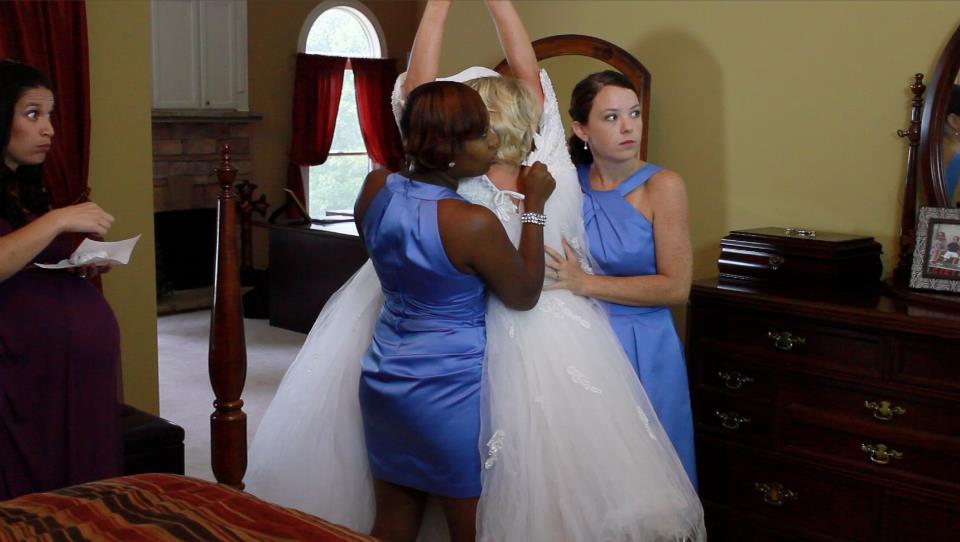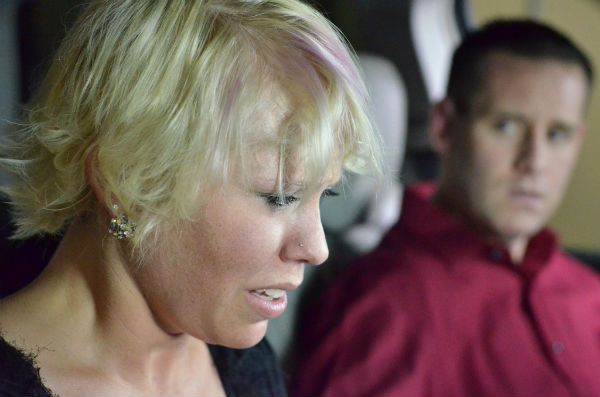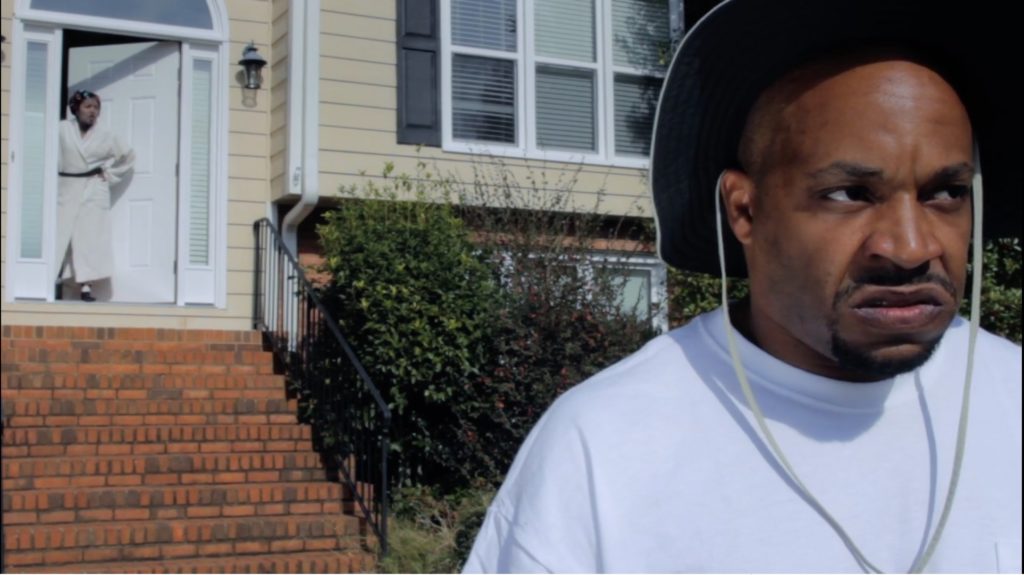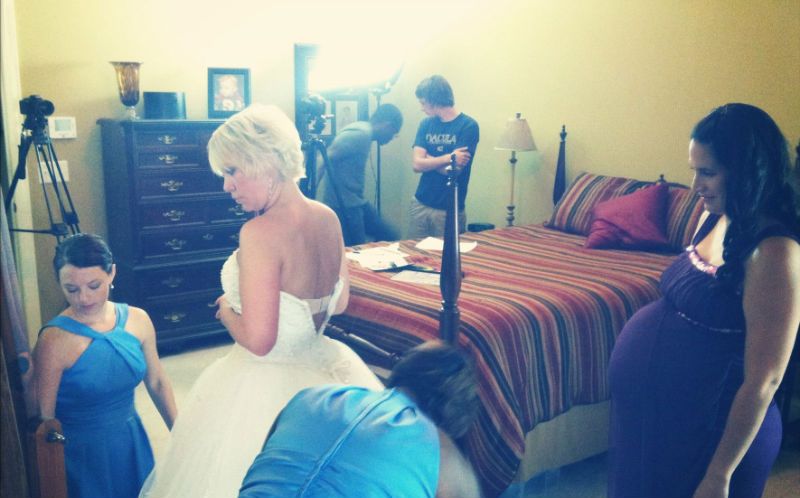Improvised scenes in filmmaking is nothing new. Christopher Guest (the filmmaker behind such comedic classics as A Mighty Wind, This is Spinal Tap, and Best in Show) is one of the best known filmmakers for producing improvised work.
When you have the right cast, the right story, and the right script, you end up with an overall experience that is transcendent. I highly recommend filmmakers explore this aspect of the craft.
Guest and long-time collaborator (and recent Emmy winner) Eugene Levy commented that a significant aspect of these films is creating a structure that the actors can follow. There may not be a formal script, but that doesn’t mean there’s isn’t a method to the madness of the storyline and the characters.
A number of years ago I had the opportunity to shoot a short film that largely depended on improvised scenes. These were the lessons I learned.
But first the set up.
A “marriage” of structure and spontaneity
The film I shot was the third installment in a 3-part promotional film series for a mega church in Atlanta, GA (which is kind of redundant because all the churches in Atlanta are pretty much “mega.”) We created a comedy series to promote the church’s “All in” campaign. This was a campaign to get the congregation to be “all in” as it related to volunteering, community service, outreach, etc.
Each of the films was a short, comedic piece that somehow worked in the “All in” joke. I think the first one was a joke about stuffing somebody’s mouth with food. The second had to do with a cranky wife shoving her crabby husband into a pool.
The third and final piece was called Tailor ‘Maids. I would probably best describe it as as a church-friendly Bridesmaids. (Actually, I take that back. It wasn’t like Bridesmaids at all, other than it involved, well, bridesmaids). The concept of the film explored what happens when a bride is having trouble getting into her dress the morning of the big day.

I knew I wanted the actors to have free rein in the execution of their roles, so improvisation would play a big part in the success of the piece.
Here are the top four tips I can provide when shooting highly improvised scenes and/or scripts.
1. Great improvised scenes start with the right cast
Successful improvisation falls largely on the shoulders of the actors who will be improvising. They not only have to be able to act well, in a strange sort of way, they also have to be good “writers.” They have to take what you’ve written, expand on it, and even come up with completely new material—all on the fly. I had a wonderful cast for Tailor ‘Maids.

- The Bride (“Mary”) was played by Mary Ellen Fiddler. She gave an amazing and emotional performance in the short film “Cheater,” written and produced by my business partner at the time, Phil Stevens for his “Pressure Points” film series (he and I co-directed the piece.) The contrast between her in that film and this is a testament to her talent.
- The pregnant bridesmaid (“Ana”) was played by Ana Bright. Again, another terrific talent. She gave a tour-de-force emotional performance in “Angry,” another film from the Pressure Points series (directed by me and written, produced and even starring Phil).
- “Miss Bossy” was played by Abigail “Don’t Call Me Abi” Williams, a local drama coach. This was my first time working with her, and she nailed the character.
- Finally, “Mona Man-Hands” was played by Simone Luke-Forbes, a local actress I had used in another comedic short film called “Lawn” (which was a spoof on the famous Rob Bell “Nooma” series from the early 2000s).

One thing about this production that I didn’t even realize at the time was that not only did I use a talented cast, but the cast was predominantly made up of actors I had previously worked with. This allowed there to be an instant level of trust between me and the actors—my trust in their talent to take my script and run with it; and their trust in me as a director to feel comfortable to experiment without fear of retribution. I can only imagine this is a reason you see Guest work repeatedly with the same actors.
So, to summarize, the right actors are both talented and have established a mutually trustworthy relationship.
2. Create a backstory for the actors
This was going to be a very short script. It could really play as a scene in a longer film (something I’m seriously considering). Since there is nothing else for the actors to play on but what’s in the short script, I created a backstory for them to take into consideration when playing their characters. Here’s what I came up with:
This is a small wedding. Bride’s family doesn’t have a lot of money. Father of Bride is kind of a penny-pincher to boot.
Mary couldn’t decide on a maid of honor, so she made her three closest friends all maids of honor. This didn’t sit well with Mona or Abi who each think they should be the sole MOH. They don’t like each other and never really have.
Ever since childhood they’ve been rivals. Mona feels Abi thinks she’s “all that” because Abi gets any guy she wants and she’s from a wealthy family. Abi secretly has severe self-esteem issues and envies Mona’s strength and self-assuredness. Ana is totally laid back and thinks they’re both silly.
This whole marriage is happening rather quick. The bride and groom have only known each other six months, but knew from the get-go they were right for each other. Ana was already 3 months pregnant when asked to be a fellow maid of honor (there was no way Mary was NOT having her in her wedding). But, given the circumstances, Mary’s having second thoughts given Ana could “pop” at any moment.
The actors could use this background info to play on each other, think up new dialog, or react in a way that suggests something deeper is going on.
This short interview with Christopher Guest film regular Fred Willard, confirms this tactic for improvising in film.
3. Use Multiple Cameras
You absolutely should shoot with at least two cameras when filming improvised scenes. There are two main reasons for this:
- Since the dialog and action could change from take to take, it’s going to be difficult matching cuts from two different angles of the same scene shot with only one camera. Mona might say one thing during the time the camera is on her, but say and do something entirely different when the camera is on whomever she’s acting against in the same scene.If you roll two cameras simultaneously (one camera for each actor), then for each take you’ll have the paired performances, making it easy to cut back and forth in the editing if you have to.
- You never know when you’ll get an amazing line of dialog or hilarious action from an actor during the improvisation. It would suck if you had only one camera and it wasn’t on the person who did that amazing thing.

4. Let ‘er roll
Once you start shooting, let the cameras roll. Don’t be afraid of long takes. If an actor flubs a line, keep going with it. Improvising is kind of like exercising. It may take a while for everyone to get warmed up.
Compare the Finished Product to the Script
Below is the finished film. Compare it to the script and see how close they are, where the actors diverged, and even the scene we cut out. Most of the improvisation comes in the beginning. I hope you enjoy it.
Are there any tips you can give that I may have missed?
A few of my favorite improvisations:
- Abi trying to clasp the dress from underneath and Mona’s reaction.
- Mona’s line about crisco then Ana’s follow up about baby oil.
- Mona’s last line before the URL shows.